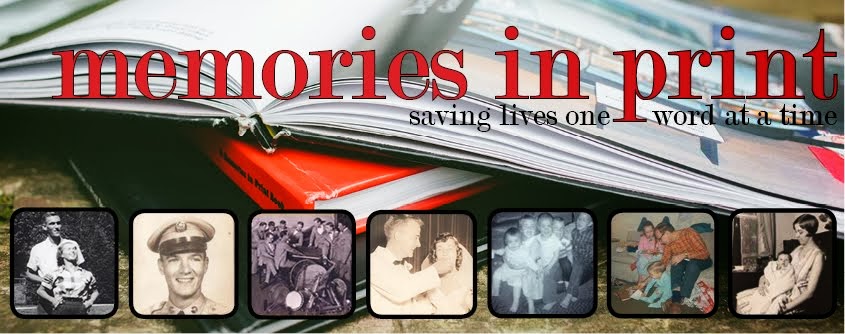Interviewing is a skill that varies from person to person, with factors ranging from personality, history, health, circumstance, and more. This series of posts about successful interview techniques shares solutions to common problems encountered while interviewing individuals for their personal and family stories.
In order to create a thorough family book, I always perform at least two or three interviews.
And I'll never forget the time I came back to interview Grandpa Ed a second time.
Ed came to the door when I knocked, and, with the interior door still closed, gruffly asked through the screen, "What are you doing back here?"
I laughed lightly and replied, "To interview you and your wife!"
No dice. "You already did that," he said through the still-closed door.
Luckily, his more talkative wife bustled over and waved him out of the way to let me inside, but for both that interview and the third, he planted himself in his armchair in the other room, watching "Wheel of Fortune" while I gabbed with his wife about family stories. But even with her help, the book was still supposed to be about both of them: how was I supposed to get his stories, too, when he'd clearly chosen Bob Barker over me?
Grandpa Ed is on the "Man of Few Words" end of the scale, which is much harder to deal with than someone who's more of a "
Babbling Brook". For running water, I can divert the flow where I want it to go ... but I can't draw water from a closed well. Also, interviews are all about talking: Babblers love to talk, but Few Words really don't like it all that much.
But even with that limitation, I managed to get Ed to willingly shared several wonderful stories with me. If you have a Man of Few Words you're trying to talk to, here's a few tips that have helped me crack those tough nuts, like Ed, in the past:
(1) Find the topics they want to talk about
During the first interview with Ed and his wife, I took some time to feel out what topics got Ed talking. I had tried to ask him, "What were your siblings like?", but was met with a matter-of-fact "I don't know anything about them". His wife and I laughed. OK, a swing and a miss - his family wasn't a talking point. But I finally struck a chord when I asked about high school: slowly, he told a few stories in a row, about girls he'd asked out and the 4H competitions he'd won and the basketball team he played on. I knew I had finally found a topic he liked because he was telling stories I hadn't asked for - he just kept talking.
(2) Ask Specific Questions about Specific Photos
While interviewing Grandpa Ed, I came across a fantastic photo of him dressed in his Navy uniform and standing in front of a 1946 Ford coupe. "Was this your first car?" I asked. "No," he replied. And then for the next ten minutes he told stories about his first car, including one about an exploding cherry bomb that blew a hole in the passenger seat. I had asked a specific question in a concrete context, and it had worked; when I tried to ask open-ended questions about his feelings, he became monosyllabic. But when I picked up a Navy photo with "Hong Kong" scrawled on the back and asked "How long were you docked there?" he ended up telling a wild story about the time he got drunk and spent the night in a Chinese jail.
(3) Get Help from People they Love (Especially Grandkids)
Especially with old salty types, never underestimate the power of their affection and sentimentality. During my third interview at Grandpa Ed's house, one of his teenage granddaughters sat in on the interviewing process and listened to her grandmother tell old family stories, even asking her questions. Her presence was enough to get Ed out of his chair, and he came to the table to ask how her golf season was going. But while he was there, he was fair game for a couple of interview questions - and when I got his brown-eyed granddaughter to start asking questions, too, he was putty in my hands. Not only is the power of affection there, but she was an in-the-flesh example of why he needs to bear the discomfort of talking: he may not find his own stories interesting anymore, but having his granddaughter there served as a reminder that he has stories that he wants his grandchildren to know, making them worth the work of telling.
Who in your family are you planning to interview? Is he a Man of Few Words, too? Or is there a different factor, health or otherwise, that you're afraid will make the interview difficult? Leave a comment and tell me all about it - I'd love to hear what you're working on!
To learn more about this and other successful interviewing techniques, follow Memories in Print on Facebook, Twitter or Google+ to keep up to date on upcoming interview posts, such as creative strategies for interviewing subjects with memory issues, breaking the ice in a first interview, and more.




